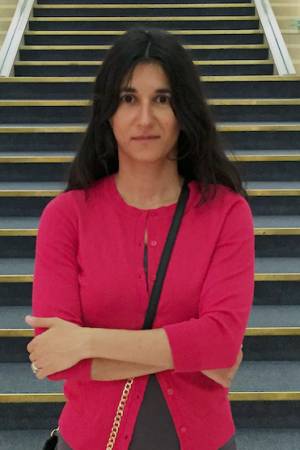Teruko Yata Memorial Lecture in Robotics
Title: Learning World Simulators from Data Abstract: Modern foundational models have achieved superhuman performance in many logic and mathematical reasoning tasks by learning to think step by step. However, their ability to understand videos, and, consequently, control embodied agents, lags behind. They often make mistakes in recognizing simple activities, and often hallucinate when generating videos. This [...]
Investigating Compositional Reasoning in Time Series Foundation Models
Abstract: Large pre-trained time series foundation models (TSFMs) have demonstrated promising zero-shot performance across a wide range of domains. However, a question remains: Do TSFMs succeed solely by memorizing training patterns, or do they possess the ability to reason? While reasoning is a topic of great interest in the study of Large Language Models (LLMs), [...]
Learning from Animal and Human Videos
Abstract: Animals and humans can learn from the billions of years of life on Earth and the evoluNon that has shaped it. If robots can borrow from that wealth of experience, they too could be enabled to learn from the experience, instead of learning through brute force trial-and-error. Learning from internet-scale videos, such as the [...]
Learning Efficient 3D Generation
Abstract: Recent advances in 3D generation have enabled the synthesis of multi-view images using large-scale pre-trained 2D diffusion models. However, these methods typically require dozens of forward passes, resulting in significant computational overhead. In this talk, we introduce Turbo3D, an ultra-fast text-to-3D system that generates high-quality Gaussian Splatting assets in under one second. Turbo3D features a [...]
Reconstructing Tree Skeletons in Agricultural Robotics: A Comparative Study of Single-View and Volumetric Methods
Abstract: This thesis investigates the problem of reconstructing tree skeletons for agricultural robotics, comparing single-view image-based (Image to 3D) and volumetric (3D to 3D) methods. Accurate 3D modeling is essential for robotic tasks like pruning and harvesting, where understanding the underlying branch structure is critical. Using a custom-generated dataset of synthetic trees, we train encoder-decoder [...]
Acoustic Neural 3D Reconstruction Under Pose Drift
Abstract: We consider the problem of optimizing neural implicit surfaces for 3D reconstruction using acoustic images collected with drifting sensor poses. The accuracy of current state-of-the-art 3D acoustic modeling algorithms is highly dependent on accurate pose estimation; small errors in sensor pose can lead to severe reconstruction artifacts. In this paper, we propose an algorithm [...]
Open-World Policy Steering for Robot Manipulation
Abstract: Generative robot policies have shown remarkable potential in learning complex, multimodal behaviors from demonstrations. However, at runtime, they still exhibit diverse failures ranging from task incompletion (e.g., toppling or dropping objects) to misaligned behaviors (e.g., placing the gripper inside of a cup of water). Instead of constantly re-training the policies with new data, we [...]
Faculty Candidate Talk: Karl Pertsch
Talk Title: Unlocking Scalable Robot Learning in the Real World Abstract: Many domains of machine learning, from language modeling to computer vision, have recently undergone a shift towards generalist models, whose broad generalization abilities are fueled by large and diverse real-world training datasets and high-capacity model architectures. In robotics, however, it has been challenging to [...]
Deep 3D Geometric Reasoning for Robot Manipulation
Abstract: To solve general manipulation tasks in real-world environments, robots must be able to perceive and condition their manipulation policies on the 3D world. These agents will need to understand various common-sense spatial/geometric concepts about manipulation tasks: that local geometry can suggest potential manipulation strategies; that changes in observation viewpoint shouldn't affect the interpretation of [...]
Faculty Candidate Talk: Aja Carter
Title: Paleorobotics: Design Principles 540 million years in the making Abstract: Bioinspiration has provided key design insights in many fields, particularly in robotics, where there has been an explosion of interest in quadrupedal robot “dogs” and bipedal humanoid robots. However, the designs prescribed by only considering living animals are a small subset of available designs; [...]
Deformation-Aware Manipulation: Compliant and Geometric Approaches for Non-Anthropomorphic Hands
Abstract: Soft robot hands offer compelling advantages for manipulation tasks, including inherent safety through material compliance, robust adaptation to uncertain object geometries, and the ability to conform to complex shapes passively. However, these same properties create significant challenges for conventional sensing and control approaches. This talk presents approaches to bridging advances in geometric learning and [...]
Faculty Candidate Talk: Carlo Sferrazza
Title: The Path to Humanoid Intelligence Abstract: Humanoid robots represent the ideal physical embodiment to assist us in the diversity of our daily tasks and human-centric environments. Driven by substantial hardware advancements, progress in artificial intelligence (AI), and a growing demand for adaptable automation, this vision appears increasingly feasible. Yet, to date, humanoid intelligence remains [...]
Integrating Safety Across the Learning-Based Perception Pipeline: From Training to Deployment
Abstract: Robots operating in safety-critical environments must reason under uncertainty and adapt to novel situations. However, recent advances in data-driven perception have made it increasingly difficult to provide formal safety guarantees, particularly when systems encounter out-of-distribution or previously unseen inputs. For such systems to be safely deployed in the real world, we need data augmentation [...]
Physical Intelligence and Cognitive Biases Toward AI
Abstract: When will robots be able to clean my house, dishes, and take care of laundry? While we source labor primarily from automated machines in factories, the penetration of physical robots in our daily lives has been slow. What are the challenges in realizing these intelligent machines capable of human level skill? Isn’t AI advanced [...]
Robotics Institute Semi-formal
Hello all Robotics Institute faculty, students, visitors and staff, You and a guest are cordially invited to attend The Robotics Institute Semi-formal
Faculty Candidate Talk: Jason Ma
Title: Internet Supervision for Robot Learning Abstract: The availability of internet-scale data has led to impressive large-scale AI models in various domains, such as vision and language. For learning robot skills, despite recent efforts in crowd-sourcing robot data, robot-specific datasets remain orders of magnitude smaller. Rather than focusing on scaling robot data, my research takes the alternative path of directly [...]
RI Seminar with Charlie Kemp
Robotics Institute Picnic
Please mark your calendars and plan to join us for the 2025 Robotics Institute Picnic! More information and RSVP e-vite to follow as we get closer to the event.















